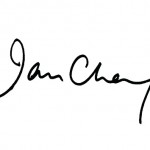I have lived in Hong Kong since I was born.
Throughout this time, I always thought my hometown was really a diverse and intriguing place. It is home to different peoples, a city where you can hear different voices and find different cultures; and together we weave the rich tapestry that is Hong Kong.
But holes began to appear in the fabric recently, as our society is getting more and more divided, or even polarised, over an array of issues. A war between different values, in which citizens are digging their heels in on either side of the battle line, is now simmering.
This is why we have decided to feature Hong Kong’s brewing culture war in this month’s Periscope section of Varsity. Contemporary use of the term originates from the United States and refers to the clash of ideas, usually between conservatives and liberals, over various social issues such as abortion, gun politics, gay rights and sex education. Has the culture war arrived in Hong Kong, and if so what are the issues of contention?
We start by looking at the struggle between local consciousness and nationalism in Hong Kong. As our ties with the Mainland have become closer, our feelings have also become more complex and ambivalent. This has caused some locals to reflect on their cultural identity, but this has apparently upset people who uphold their national identity tenaciously. Will these tensions escalate into more than just a war of words?
We also look at the conflicting views among evangelical and liberal Christians over a number of social issues. The most visible flashpoint is over the issue of homosexuality. The evangelicals’ high-profile stance against equal rights for homosexuals has even invited criticism from non-believers. How do Christians make sense of the widening division within their faith, and the world outside it?
We take our exploration further by looking at how some in Hong Kong are reimagining the way people should speak out about their needs and aspirations. In the past, people looked to lawmakers, especially those who were directly elected, to speak for the people in the Legislative Council. But as more people are disappointed with the pace of democratic reform and progress in their livelihoods, some are choosing alternative forms of resistance, opposition and advocacy. Some are protesting on the streets, others go further, engaging in civil disobedience. Why do some people stay to fight within the system while others have given up on it?
It is hoped that through looking into these issues, we can get a better grasp of Hong Kong’s present situation, and some clues about what is going to happen next.
But before I finish, I must state that this issue’s Varsity is a joint effort made by many first-time editors and reporters. With little clue about our job at the beginning, we worked hard with our advisers and spared no effort in striving for the best.
I proudly present this wonderful compilation of stories, and sincerely hope that you enjoy reading it – just as we enjoyed making it.
Editor-in-chief











































